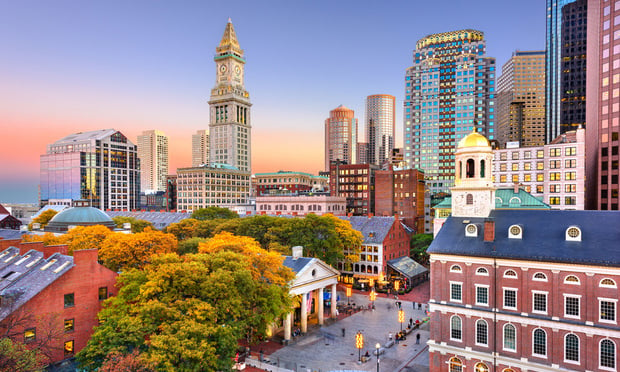"We are opposed to the Community Preservation Act," David Begelfer, CEO of the National Association of Industrial and Office Properties, tells GlobeSt.com. NAIOP is part of the Vote No on Higher Taxes Committee, which is battling the referendum. "This comes at a time when businesses can least afford it." Begelfer points out that any increase in taxes gets passed to small tenants and apartment dwellers and he adds that the "surcharge is over and above any increase that the city already has planned."
Commercial real estate property owners will also shoulder most of the burden of this tax, according to Begelfer, as 80% of real estate taxes in the city are paid by commercial real estate property owners. "This is the wrong time to hit the business community," he says. "Everyone can clearly see the problems in the economy and everyone is concerned about where the economy is going."
But Albert Rex, executive director of the Boston Preservation Alliance and a member of the Committee to Build a Better Boston, a coalition of groups that support the act, insists that the Community Preservation Act will ultimately benefit businesses in the city. He points out that many local small businesses are part of his coalition and they "don't object to their taxes going up. They're losing their client base who are moving out because they can't afford housing. The Community Preservation Act will create new housing units for their constituents."
Rex points out that out of the 25,870 commercial properties listed in the Boston assessors database 16,461 will pay property taxes. A two-percent surcharge will mean an average of $107 annually on a median tax cost of $5,371. Ninety percent of businesses will pay less than $724 a year on the surcharge. Rex acknowledges that the Vote No committee's example of a business that will have to pay an extra $7,680 if the Community Preservation Act is passed is accurate but he points out that "99% of business will pay less."
It is estimated that the act will bring in $14 million annually, and in the first year those funds will be matched by the state. In subsequent years, the matching pool will depend upon how many communities across the state adopt the act. Thirty communities adopted the Act last year and it is anticipated that another 30 will adopt it this year. If that number drops down to 15 to 20 towns over the next two years the matching funds will still be between $8 million and $10 million.
"The Chamber of Commerce here has cited housing as the biggest issue for business in Boston," says Rex. "If we need to bring in the best and the brightest we need to provide housing. People can't afford to live in the city."
Begelfer contends that his organization is not against funding affordable housing. "We participated in the linkage commission," he says, in which linkage payments from developers that fund affordable housing were increased and the payout time was decreased. "We are just saying this is the wrong time to hit the business community again."
But Rex sees things differently. "We think they're being short sighted," he says.
Want to continue reading?
Become a Free ALM Digital Reader.
Once you are an ALM Digital Member, you’ll receive:
- Breaking commercial real estate news and analysis, on-site and via our newsletters and custom alerts
- Educational webcasts, white papers, and ebooks from industry thought leaders
- Critical coverage of the property casualty insurance and financial advisory markets on our other ALM sites, PropertyCasualty360 and ThinkAdvisor
Already have an account? Sign In Now
*May exclude premium content© 2024 ALM Global, LLC, All Rights Reserved. Request academic re-use from www.copyright.com. All other uses, submit a request to [email protected]. For more information visit Asset & Logo Licensing.








